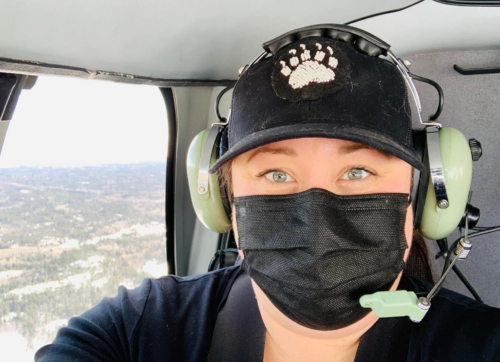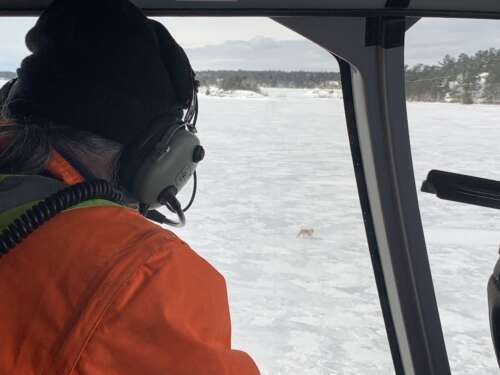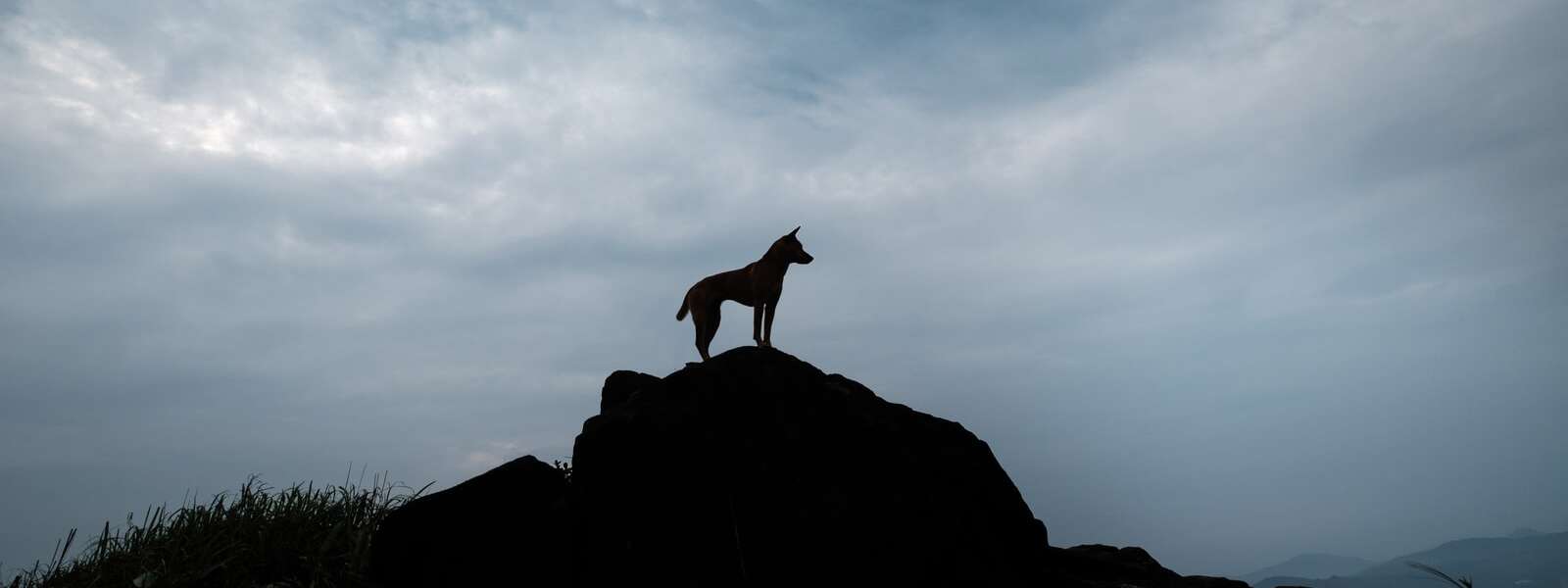
The first thing University of Guelph professor Dr. Jesse Popp did when considering how to research the Eastern wolf population in Northern Ontario was to reflect on what years of relationship building with local Indigenous communities had provided: unique knowledge that would help efforts to learn more about the animals and their decreasing population.
Building relationships with Magnetawan and Shawanaga First Nations was a key first step, said Popp, a member of Wiikwemkoong Unceded Territory who is the Canada Research Chair in Indigenous Environmental Science and was recently named to the Indigenous Leadership Circle in Research, formed by the Canada Research Coordinating Committee.
Those relationships were able to grow, she said, because researchers listened to and valued the Indigenous communities expressing their needs.
“It’s a unique project,” Popp said of the endeavour that includes her team, scientists from the Ministry of Northern Development, Mines, Natural Resources and Forestry (MNDMNRF), Indigenous Elders and Knowledge Keepers. “At least in wildlife ecology, in Ontario, these sorts of relationships are still rare; not just collaborating with but taking the lead from Indigenous communities.”
GPS trackers send data to satellites where scientists can observe in real time
The Eastern wolf is a species at risk, deemed threatened in Ontario since 2015 by a number of factors including loss of habitat, hunting by humans and hybridizing with other wolves and coyotes. Part of the research Popp’s team is conducting is the collection of genetic data.

With the collaboration of Wiikwemkoong species at risk coordinator Elder Theodore Flamand and MNDMNRF scientists, researchers are tracking the wolves from a helicopter and temporarily capturing the animals using nets while forgoing tranquilizers.
GPS collars are fastened to the animals and blood samples are taken to derive data for genetic composition. Researchers also plan to track the wolves on land to collect scat samples, also rich in genetic information.
The GPS collars are programmed to send data several times a day to a satellite. Researchers are able to view the incoming data in real time, observing wolf behaviour including where they have traveled – if solo or in packs – as well as whether they preyed on something, and even identifying den sites.
Around the two-year mark, a device on the collar signals it to automatically fall off and researchers will collect the devices for reuse.
One question researchers and First Nations are both asking is whether the wolves are resident or transient. “Are they travelling through the territory or is this their home?” asked Popp.
Those initial conversations with the First Nations provided her and the team with knowledge that led them to locate the wolves more efficiently than they might have on their own, she said. “By weaving knowledge systems and building a relationship, spending time with the community, to visit and learn from one another and conduct research in a good way, we’re seeing such success in these early stages.”
Research conducted through Wildlife, Indigenous Science, Ecology Lab at U of G
The work is being conducted through the Wildlife, Indigenous Science, Ecology (WISE) Lab at U of G that Popp created in 2018 with funding from the Natural Sciences and Engineering Research Council of Canada.
Reciprocity, responsibility and respect are the founding principles of the WISE Lab, Popp said.
In the past, Indigenous communities and provincial governments have conflicted when it comes to wildlife monitoring and management, she explained. Relationships need improving, Popp said, citing this project as a positive step in that direction.
The goals of the project are multi-faceted, she added. The research will establish meaningful relationships with First Nations, elevate Indigenous knowledge and perspectives, and demonstrate how weaving knowledge systems can advance science – in this case, the understanding of wolf behaviour and spatial ecology, information that can contribute to conservation planning.
Scientific methods that take a respectful and inclusive approach lead to better research, Popp said. “We talk about reconciliation with people, but we also have to think about reconciliation with the Earth,” she said. “The wolves we’re studying – they are our relations. They’re our brothers and sisters.”
Contact:
Dr. Jesse Popp
poppj@uoguelph.ca
